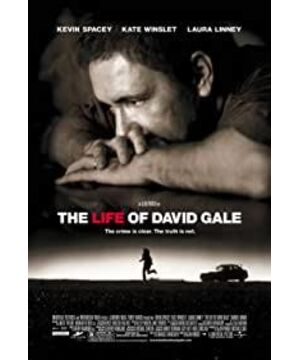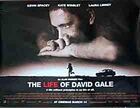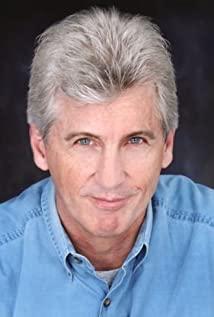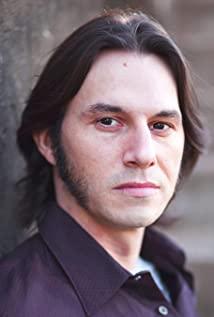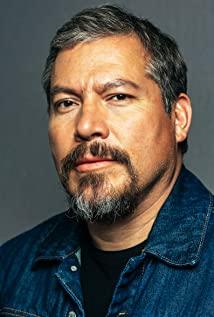What is the best effort you can put in for your ideals? This is a question that is frequently asked during self-reflection. Every time I talk about this issue, I can't help but think of an impressive line in "Attack on Titan": A person who can't lose anything can't get anything after all.
This line coincides with the point of view stated by David Gore when he expounds the theory of life value in this film: Self-sacrifice is always the highest martyrdom for idealists. That doesn't mean that you don't cherish your own life. On the contrary, in the film "The Life of David Gore", the two idealists who advocated the abolition of the death penalty finally chose the way of self-martyrdom to realize their lofty ideals: Abolish the death penalty.
The way to achieve it is very cruel. In order to create a case of wrongful conviction due to the death penalty, two idealists work together to plan a fake murder case. In this case, an idealist (Constance) Haraway) as the deceased (actually suicidal technique of his own life), and another idealist (David Gore) as the so-called suspect; sure enough, the stupid police took David Gore for granted The decision to put the murderer in this case by lethal injection...
From an outsider's point of view, such a move is almost crazy, but if you devote yourself to the film and put yourself in the situation of David Gore, In a televised debate with the governor of Texas on whether to abolish the death penalty, David Gore, who had the upper hand at first, was left speechless by a question from the governor. The governor's question was simple: Since you think the death penalty is a Existence will cause many unjust cases, so please cite at least one unjust death penalty case in Texas. As long as you name one, I will immediately reconsider the death penalty system. And it is such a question, but David Gore can only choose to remain silent. Because the so-called injustice caused by the death penalty, even if it exists, it is difficult to obtain relevant evidence.
Since we can't collect evidence, let's just create a death penalty case. I think this may be the psychological motive behind the abolitionist Constance Haraway and David Gore's decision to make this fake murder case. And there is a reason why the film only uses David Gore, one of the two martyrs, as the title.
In this film, the martyr Constance Haraway has learned that she is dying from a terminal illness before making this fake murder, so at this time she and David Gore co-planned the case , mixed with his own emotional factors. Strictly speaking, Haraway's alleged devotion to the abolition of the death penalty was not entirely of his own will. Had it not been for her terminal illness, perhaps there would not have been her subsequent martyrdom.
And look at David Gore, as the murder suspect in this fake case, even at the moment of execution, he still kept his mouth shut, because his purpose was only one: let the police use the death penalty to execute me, and then tell the truth Make it public, thereby adding a wrongful conviction to the death penalty in Texas. This is the real martyr, even if Death comes to claim his life with his machete, the martyr will never be moved. Speaking of David Gore in this film, it always reminds people of the scene when Socrates faced the jury. Socrates offered to the jury to exchange 20 silver coins for his own life. The jury felt Ridiculed, more people voted for death than guilty in the first place. David Gore must have admired Socrates too, right? Therefore, Gore's calmness in martyrdom for ideals also has a basis.
Although the actions of the people in the film are a bit radical, but throughout history, which reforms were not accompanied by bloodshed? Of course, there is an essential difference between the martyrdom in the film and the way terrorists "suicide and martyrdom" today. Because in the film, the director used Gore's mouth to explain the nature of this martyrdom: in fact, martyrdom is just an extreme means for idealists to achieve their wishes. The standard for measuring a person's value is to see whether he has sincerity in his heart. , pity, and the light of reason, if indeed such a man, when he is desperate, the realization of his ideals by means of self-sacrifice is certainly worthy of our praise; on the other hand, those terrorists under the guise of martyrdom are The purpose itself does not contain the so-called light of reason and compassion, and such martyrdom can only be equated with bloodthirsty.
The success of the film "The Life of David Gore", in addition to the fascinating storyline stated in the film, is also quite distinctive in the plot arrangement. The movie starts with a rape and murder case, which makes the first-time viewers think that this is nothing more than a crime-themed movie. However, as the plot progressed, the initial inference was gradually broken when a New York reporter visited the suspect David Gore for three days. This film mainly uses the last three days of David Gore as a clue. At the beginning and end of each day, the key words of this day will flash in the film. Analysis of the film shows that before the New York reporter contacted David Gore herself, her keywords were: "Truth", "Life", "fantasy"... Over time, "rape" and "revenge" appeared in the keywords. ""murder" and other words, and by the end of the last day, the keyword has become "innocent". The ingenious way of using keywords to connect the plot of the movie is indeed very novel and special, and the comparison of keywords before and after shows the various changes in the murder case in a more accurate way to a certain extent.
And a crucial word appeared in the keywords of the last day: "moral" (moral). This is a very intriguing word. David Gore's claim to abolish the death penalty in the movie contains the mutual game between law and human rights, morality and human nature. The keyword "morality" that only appears at the end of the movie also seems to reflect a desire of the director himself: in the future, when the citizens of the earth can live in an orderly manner based on morality, it may be Plato's "Utopia" The day of the dream come true.
David Gore, who died for his ideals, and Bruno, who died for truth, and Don Quixote, who fought against windmills for dreams, are warriors with pure hearts and strong wills.
View more about The Life of David Gale reviews


